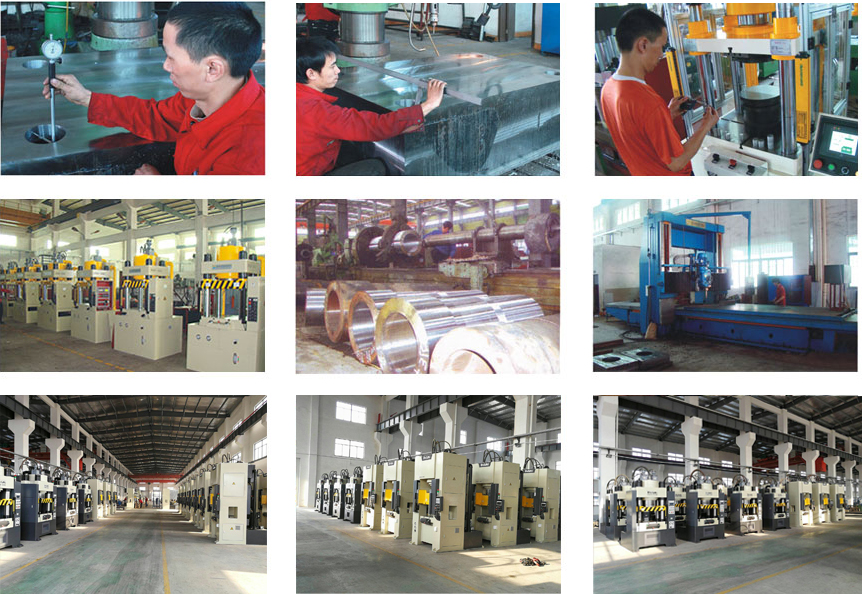Common failure and maintenance methods of servo hydraulic press
2020-07-16 09:13:39
Although GoodsJack servo hydraulic presses are durable, they are not permanent. Due to frequent use, the servo hydraulic press may be worn and damaged. Therefore, it is necessary to do repair and maintenance work of the servo hydraulic machine in order to continue to ensure that its performance remains unchanged and extend its service life. There are four common fault phenomena of servo hydraulic press: overheating, oil leakage, noise, no pressure or slow pressure.
Causes of overheating include hydraulic oil contamination, increased pressure and friction. We just need to know that the hydraulic press should not reach temperatures above 150 degrees Celsius. If this happens, the seals will be damaged.
Maintenance method: clean oil and cool down (install tube-type oil cooler or plate heat exchanger)
Oil spill
Oil leaks are common around hose end fittings, as well as plungers and hydraulic lines. To prevent oil leakage, make sure to tighten all accessories and use the hydraulic oil recommended by the manufacturer.
Maintenance method: Identify leaking components, such as hydraulic cylinders, pumps or valves, and inspect them after disassembly.
Noise
When the hydraulic machine makes a knock or impact noise, it may be a problem of air in the fluid. In addition, component damage and lubrication failure are also common causes of abnormal noise.
Maintenance method: exhaust the air in the fluid, solve the lubrication problem, and replace or repair the damaged parts.
No pressure or slow pressure
No pressure or slow pressure is usually caused by dirt and leakage in the hydraulic oil.
Maintenance method: In order to prevent this situation, please check whether the hydraulic system is contaminated and leaks.

Common failure phenomena and maintenance methods of servo hydraulic press
OverheatCauses of overheating include hydraulic oil contamination, increased pressure and friction. We just need to know that the hydraulic press should not reach temperatures above 150 degrees Celsius. If this happens, the seals will be damaged.
Maintenance method: clean oil and cool down (install tube-type oil cooler or plate heat exchanger)
Oil spill
Oil leaks are common around hose end fittings, as well as plungers and hydraulic lines. To prevent oil leakage, make sure to tighten all accessories and use the hydraulic oil recommended by the manufacturer.
Maintenance method: Identify leaking components, such as hydraulic cylinders, pumps or valves, and inspect them after disassembly.
Noise
When the hydraulic machine makes a knock or impact noise, it may be a problem of air in the fluid. In addition, component damage and lubrication failure are also common causes of abnormal noise.
Maintenance method: exhaust the air in the fluid, solve the lubrication problem, and replace or repair the damaged parts.
No pressure or slow pressure
No pressure or slow pressure is usually caused by dirt and leakage in the hydraulic oil.
Maintenance method: In order to prevent this situation, please check whether the hydraulic system is contaminated and leaks.



 TOP
TOP WINDOWS
WINDOWS